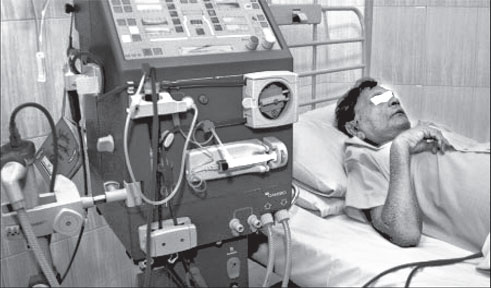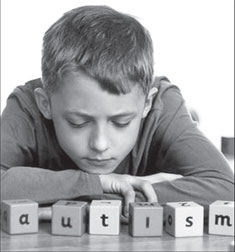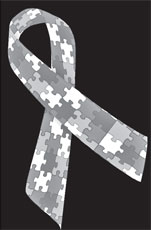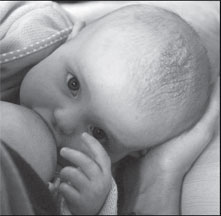|

Kidney disease is preventable with early detection
By Carol Aloysius
The rising number of patients with chronic kidney problems as well as
those affected by chronic kidney disease of unknown origins ( CKdu) has
become a serious health issue in our country. Since the largest number
of patients kidney have been reported from the North Central Provinces,
the Sunday Observer spoke to Consultant Nephrologist Dr CHINTANA
GALAHITIYAWA of the Anuradhapura Teaching Hospital to get a better
insight into the causes of this widely prevalent disease, how it could
be prevented, the treatment procedures, as well as the immediate needs
of the hospital.
Question: What causes kidney diseases?
Answer: Kidney diseases are mainly of two types. Acute (new
onset disease of days to weeks which usually be cured if diagnosed in
time and properly treated).
Causes include infections (ex-Leptospirosis and severe infections),
Low blood pressure of any cause 2. Chronic (long standing slowly
progressing kidney damage which usually is irreversible) Causes -
ex-long standing Diabetes, High blood pressure 3. Chronic kidney disease
of unknown origin (CKDu) is the term used for north central province
kidney disease which is classified as interstitial nephritis
histologically.
Q. Are there different types of kidney disease - e.g. stage
one, stage 2 and end stage etc?
A: Chronic kidney disease is divided in to 5 stages according
to EGFR (Estimated Glomerular Filtration Rate)
Normal EGFR 90 to 125
Stage 1 - 90 with Asymptomatic urinary abnormalities
Stage 2 - 60 to 89
Stage 3 - 30 to 59
Stage 4 - 15 to 29
|

A patient receiving dialysis treatment |
Q. How prevalent is it in Sri Lanka?
A. No recent studies have been done in Sri Lanka to determine the
prevalence.
Q. What are the symptoms?
A. No specific symptoms and the majority are asymptomatic till
they reach advanced stages.
Common symptoms include general weakness, loss of appetite, swelling
of the body, body itch and shortness of breath.
Q. Can they be detected early before going on to stage 2?
A. Yes, in some fortunate patients diagnosed early in routine
medical checkups. At present many early stage patients are detected in
the North Central Province (NCP) in the community based screening
programs.
Q. Is it hereditary? Can a parent pass it on to a child?
A. There are rare hereditary kidney diseases. Ex-Alport’s
disease, Familial FSGS
Q. Who are the most vulnerable groups to get this?
A. NCP kidney disease is commonly seen among the farming
community. Usually affects the adults and rare among teenagers.
Q. How can it be prevented?
A. The current belief is that NCP kidney disease is caused by the
toxins contained in agrochemicals and fertiliser such as Arsenic and
Cadmium. Long term exposure to these toxins and accumulation of these in
the kidneys over years cause progressive kidney damage. Minimising
exposure with safe handling of agrochemicals and consumption of safe
water might prevent this disease.
Q. What are the adverse effects of kidney disease on the body?
A. Kidney is the principal metabolic regulatory organ of the
body. Kidney failure cause metabolic derangement (electrolyte imbalances
such as high potassium and phosphate.
Calcium levels will drop.) Patients become anaemic (low haemoglobin).
They also fail to maintain water balance of the body and patients urine
output drops and develop swelling of the body. Other impacts include,
failure to maintain acid-base balance and acidity of blood goes up.
Blood pressure also usually rises and patients tend to develop coronary
artery disease (heart attacks.)
Q. Do they last a life time or are they temporary?
A. To treat these problems, we need to replace the functions
of the kidneys artificially. This is called renal replacement therapy,
such as dialysis or renal transplant.
Unless the patient gets renal replacement therapy, the adverse
effects will gradually get worse and become life threatening.
Q. Does having a kidney stone make you vulnerable to the
disease?
A. There is no evidence to say that they are more vulnerable
to develop CKD-u. But patients with stones are more prone to develop
kidney infections and they can obstruct the urine drainage. These can
subsequently cause chronic kidney disease.
Q. What role do NCD’s such as diabetes, hypertension and
cholesterol play as contributory factors?
A. Long standing poorly controlled diabetes and/or
hypertension can cause chronic kidney disease. Diabetes is the commonest
cause for CKD worldwide.
Therefore, these can aggravate the severity and expedite the
development of ESRD in NCP kidney disease patients.
National Kidney Foundation
The National Kidney Foundation of Sri Lanka was incorporated by an
Act of Parliament in 2006 (Act No. 34 of 2006) as a Non- Profit
Organisation dedicated to assisting in the prevention and treatment of
Kidney diseases in Sri Lanka. It was declared an Approved Charity by
Gazette No.1554 of 13.06.2008.
Vision: To eliminate or minimise the incidence of Chronic Kidney
Disease in Sri Lanka, and establish Renal Care and Research Centres
throughout the island, and provide Health Care to those who have been
diagnosed with Chronic Kidney Disease.
For more information contact: National Kidney Foundation 18 1/1,
Colombo Street, Kandy, Sri Lanka.
Telephone : +94 81 2222924
|
Q. Any new breakthroughs in treatment worldwide and in Sri
Lanka?
A. Haemodialysis and renal transplant is the only treatment
available for ESRD. With the advancement of immuno-suppressive therapy
during past decade has markedly improved the success in renal
transplants and their life span. New dialysis regimens and new equipment
have improved the effectiveness and patients quality of life.
Q. Are there separate wards for patients with kidney problems?
A. There are separate Nephrology wards, at Maligawatte in
Colombo, Sri Jayewardenepura Hospital and Anuradhapura hospital.
Q. How is kidney disease treated? With Drugs? Surgery?
Dialysis?
A. Treatment depends on the CKD stage. Stage 1 to 5 patients
are treated with drugs only. When they reach End stage, they need to
have renal replacement therapy to live. Usual initial step is starting
regular dialysis. Dialysis is of two types.
1. Hemo-dialysis - cleaning of patients’ blood and remove excess
water through a complex machine and return to patients over a short
period of 2.5 to 4 hours twice or thrice a week.
2. Peritoneal dialysis - removes patients’ toxins and excess water by
a special fluid instilled into the peritoneal cavity through a catheter
inserted into the abdominal wall. It’s a continuous procedure and the
fluid instilled in the abdomen is periodically exchanged.
It’s done daily and gives more freedom to the patient. Unfortunately
this is less popular in Sri Lanka.
Patients who are medically fit enough to have surgery and who have a
matching donor are offered renal transplantation.
Q. How do babies get kidney disease?
A. The causes are different from adults. Congenital causes are
the main factors causing CKD in babies.
Q. Is there a separate ward for them?
A. Paediatric nephrology is a developing field in Sri Lanka.
At present they are treated in the paediatric wards and there aren’t any
paediatric nephrology wards. But, adults have separate Nephrology wards.
At Colombo Maligawatte, Sri Jayewardenepura and Anuradhapura
hospitals have dedicated adult wards.
Q. What role does diet play?
A. Diet is an important factor in management of kidney
disease. Patients should get adequate nutrition and at the same time
they should avoid certain items that contain harmful substances such as
potassium and phosphates.
Patients should limit their fluid intake to recommended amounts when
they reach ESRD and on RRT.
Q. When does one need dialysis?
A. When a CKD patient reaches ESRD and when they have
medically uncontrolled metabolic derangements leading to poor quality of
life or toxin levels reaching life threatening quantities.
Q. What is dialysis? Explain the procedure.
A. Hemo-dialysis - cleaning of patients’ blood and remove
excess water through a complex machine and return to patients over a
short period of 2.5 to four hours twice or thrice a week.
The hemo dialysis machine has a part resembling an artificial kidney.
It has a semipermeable membrane which separates patient’s blood and
special dialysate fluid flowing on opposite directions. During this
procedure toxins are exchanged into dialysate fluid long with excess
water.
Q. What is CKDu which is now spreading in the North Central
province.
A. It’s a slowly progressive chronic kidney disease which is
mainly seen in North Central Province and some parts of Uva Province. It
mainly affects middle aged and adult population. Likely causes are
toxins contained in agrochemicals and fertiliser such as arsenic and
cadmium.
Classical areas observed are areas which have the combination of hard
water and high agrochemical/fertiliser usage. This kidney disease is
irreversible and no effective treatment available to date.
Q. As a Teaching hospital serving over a thousand patients,
does your hospital have adequate facilities to meet the increased number
of kidney patients?
A. At present we have adequate infrastructure at Anuradhapura
unit and we will be getting more medical and nursing staff towards the
latter part of this year.
The Minister of Health is closely liaising with the NCP renal unit to
fulfill these requirements. As the number of patients increases day by
day the current facilities need to be improved with time and the plan is
to improve the facilities in peripheral units such as Padaviya,
Kebithigollewa and Medawachchiya. The first satellite dialysis unit will
be opened soon at Padaviya.
Q. Your message to the public on preventing kidney disease?
A. As the cause in not clear at present for the CKDu it is
better to take all the precautions to avoid all potential causes such
as;
1. Clean water (bottled, filtered)
2. Safe handling of agrochemicals and fertiliser
3. Minimise the adding of agrochemicals and fertiliser to the
environment
Basic screening for hypertension, diabetes and proteinuria Screening
for kidney impairment for early diagnosis especially for relatives of
diagnosed patients and people from the same village.
Hope for Lankan autism sufferers
Autism is a disorder of neural development characterised by impaired
social interaction and verbal and non-verbal communication and by
restricted, repetitive or stereotyped behaviour. Autism spectrum
disorder (ASD) and autism are both general terms for a group of complex
disorders of brain development.
The diagnostic criteria require that symptoms become apparent before
a child is three years old.
|

Autistic Child |
|

Autism Awareness Ribbon |
Autism affects information processing in the brain by altering how
nerve cells and their synapses connect and organise; how this occurs is
not well understood.[3] It is one of three recognised disorders in the
autism spectrum (ASDs), the other two being Asperger syndrome, which
lacks delays in cognitive development and language, and pervasive
developmental disorder, not otherwise specified (commonly abbreviated as
PDD-NOS), which is diagnosed when the full set of criteria for autism or
Asperger syndrome are not met. Autism has a strong genetic basis,
although the genetics of autism are complex and it is unclear whether
ASD is explained more by rare mutations, or by rare combinations of
common genetic variants.
In rare cases, autism is strongly associated with agents that cause
birth defects.[6] Controversies surround other proposed environmental
causes, such as heavy metals, pesticides or childhood vaccines; the
vaccine hypotheses are biologically implausible and lack convincing
scientific evidence.[8]
The prevalence of autism is about 1–2 per 1,000 people worldwide, and
the Centres for Disease Control and Prevention (CDC) report 20 per 1,000
children in the United States are diagnosed with ASD as of 2012 (up from
11 per 1,000 in 2008).
The number of people diagnosed with autism has been increasing
dramatically since the 1980s, partly due to changes in diagnostic
practice and government-subsidized financial incentives for named
diagnoses; the question of whether actual prevalence has increased is
unresolved.
Parents usually notice signs in the first two years of their child's
life.[12] The signs usually develop gradually, but some autistic
children first develop more normally and then regress.
Not many children with autism live independently after reaching
adulthood, though some become successful.
An autistic culture has developed, with some individuals seeking a
cure and others believing autism should be accepted as a difference and
not treated as a disorder.
There are over 40,000 suffering with autism in Sri Lanka.
Many struggle without access to public services in education, health,
specialist speech therapy and respite care.
There are only a handful of schools who can offer only a few places
for children with autism in Sri Lanka.
The vast majority have no access to education many are kept at home
due to reasons of culture.
A reputed team now offers group therapies and day care facilities for
Autism and special need children in Sri Lanka. More details about the
special program conducted at Dehiwala could be obtained from 077-6019172
Autism, the experts suggest, is a brain disorder characterised by
impaired social interaction and communication skills and limited
activities and interests is the most characteristic and best studied
PDD.
Other types of PDD are Asperger's syndrome, Rett's Syndrome,childhood
dis-integrative disorders and others.
Breast-feeding babies improve their chance of climbing social ladder
Breastfeeding improves a child’s chance of climbing the social ladder
and becoming a successful adult, according to a long-term study.
The analysis of more than 34,000 people born in the 1950s and 1970s
found that those who had been breastfed as a baby were 24 percent more
likely to be upwardly mobile - and 20 per cent less likely to drop down
the social ladder.
The health benefits of breastfeeding are well known, but the study is
among the first to identify tangible benefits later in life.
 Two groups of people - born in 1958 and in 1970 - were categorised by
the job their father did when they were 10 or 11, and the job they
themselves had when they were 33 or 34. Two groups of people - born in 1958 and in 1970 - were categorised by
the job their father did when they were 10 or 11, and the job they
themselves had when they were 33 or 34.
Social class was divided into four categories based on job type -
from unskilled and semi-skilled manual work to professional or
managerial work. The authors of the study, published in Archives of
Disease in Childhood, said that it provided evidence of long-term
health, developmental and behavioural advantages to children, which
crucially persist into adulthood. Breastfeeding enhances brain
development, which boosts intellect, which in turn increases upward
social mobility, they said.
“There are few studies that look at the long-term outcomes of
breastfeeding, but this study shows its long-lasting positive effect,”
said Professor Amanda Sacker, one of the report’s authors.
The NHS recommends breastfeeding to new mothers for the first six
months of a baby’s life. Breast milk protects children from infections,
and breastfed babies are also less likely to become obese or develop
eczema.
The report’s authors said that breastfeeding also helped to generate
a strong emotional bond between mother and baby.
“Perhaps the combination of physical contact and the most appropriate
nutrients required for growth and brain development is implicated in the
better neurocognitive and adult outcomes of breastfed infants,” they
said.
Professor Sacker said that mothers who could not breastfeed could
still aid their baby’s emotional and cognitive development with cuddling
and close skin-to-skin contact with their baby while feeding. The study
comes in the wake of figures that revealed the number of women
breastfeeding their babies in England has dropped for the first time in
a decade.
Numbers have been increasing in recent years, following a long-term
decline associated with more women working and the increasing use of
baby formula.
- The Independent
|


